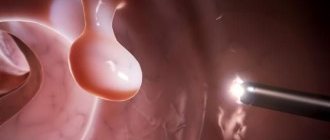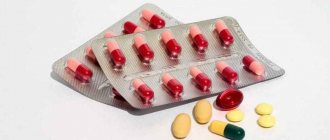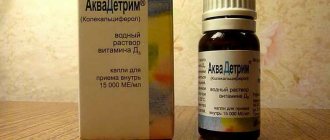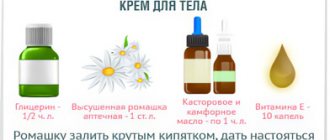All B vitamins are the basis for the harmonious functioning of the central and peripheral nervous systems. In addition, without the participation of these organic compounds, more than one physiological and biochemical process that ensures the vital activity of the human body cannot proceed normally.
This group of vitamins takes an active part in the formation of bone and muscle tissue and regulates general metabolism. It is impossible to maintain health for many years and maintain good health without regular, sufficient intake of thiamine into the body. We also recommend ordering vitamin C to maintain your health at the proper level.
General information, history of discovery
Thiamine belongs to the water-soluble B vitamins, but it is not B6 or B12, but vitamin B 1, which has many names: thiamine, aneurin, aneurin. Vitamin B1 is not formed in the human body; it enters it with food. A small amount is produced in the intestines by beneficial bacteria.
Now Foods, B-1, 100 mg, 100 tablets
397 ₽
Buy at a discount
Vitamin B1 is present in many plants, meat, eggs, and yeast. Entering the body with food, vitamin B1 is converted into an active derivative that helps obtain additional energy. Energy is needed to carry out biochemical reactions.
Christian Eijkman (1858-1930)
The history of the discovery of vitamin B1 (thiamine) is associated with beriberi disease. In Asian countries, where the majority of the population ate rice, a significant part of the population used to suffer from it. The Dutch doctor H. Eijkman, working at the beginning of the last century on the island of Java, decided that the internal contents of rice grains had toxic properties, since those who ate refined rice became ill with beriberi.
He confirmed this guess by conducting research on chickens that were fed purified rice. The beriberi-like disease they developed was treated with rice bran, which led to their recovery. For these studies, a few years later Eijkman received the Nobel Prize.
Polish biochemist Casimir Funk confirmed Eijkman's hypothesis by obtaining an organic compound from bran. Funk called it a vitamin (vita - life, amine - containing nitrogen). Later, Robert Williams derived the chemical formula of this substance and coined the name “thiamine.” By this time, it was already known why the human body needs thiamine.
Natural Sources of Thiamine
Certain food ingredients contain increased amounts of this organic compound, which makes it possible to effectively combat the manifestations of hypovitaminosis B1 through dietary correction. In order to compensate for the deficiency of vitamin B1 in the body, it is recommended to include in the daily menu such foods as honeysuckle, pine nuts, sunflower seeds, brown rice, sesame seeds, bran, wheat sprouts, pistachio nuts, peas, hazelnuts, buckwheat, corn, Walnut. As for vitamin C, you can also purchase it at a low cost in our pharmacy.
Physico-chemical features
Vitamin B1 is a crystalline powder with high biological activity. It is soluble in water, but insoluble in alcohol. There is also a fat-soluble synthetic derivative of thiamine - benfotiamine. When heated, vitamin B1 decomposes and loses its healing properties. There are four forms of this substance in the human body:
- unphosphorylated thiamine,
- thiamine monophosphate,
- thiamine diphosphate (thiamine pyrophosphate - TPP, TDP, cocarboxylase) is the most common active form,
- Thiamine triphosphate (TTP) is an understudied form.
Chemical formula – C12H17N4OS.
The biological properties of vitamin B1 are due to the action of TPP (TDP), formed from thiamine and ATP in the presence of the enzyme thiamine kinase. This active form of vitamin B1 is a coenzyme (component) of enzymes that play a large role in metabolic processes. Enzymatic reactions involving TPP (cocarboxylase):
- It is a coenzyme of transketolase and is involved in the renewal of liver cells, red blood cells, adrenal cortex, etc. These enzymatic reactions of glucose oxidation are not associated with the formation of energy, they provide the processes of protein synthesis.
- As a coenzyme of the enzymes pyruvate dehydrogenase and α-ketoglutarate dehydrogenase, it is involved in energy metabolism. The additional energy received is used to activate all metabolic processes.
- As a coenzyme dehydrogenase promotes the breakdown of a number of amino acids.
It is believed that such a little-studied form as TTP is involved in the formation of the neurotransmitter acetylcholine and the transmission of impulses throughout the nervous system.
Why does the body need vitamin B1?
Vitamin B1 performs many functions in the body. It is necessary for the proper functioning of the nervous and digestive systems. The brain, skin, blood cells, liver, gallbladder and more need it.
- Charges with energy. A coenzyme of vitamin B1, called cocarboxylase, performs important functions in the body. It is responsible for the breakdown of carbohydrates into glucose, without which normal functioning of the brain is impossible. Neurons cannot use any nutrients other than glucose as a source of nutrition. It is to maintain their normal functioning that up to half of the sugars involved in metabolism are spent. However, carbohydrates can become a source of energy for cells only if they have undergone the process of phosphorylation. Without thiamine, the attachment of phosphorus residues to glucose is impossible.
Vitamin B1 neutralizes metabolic products, namely lactic and pyruvic acid. Their excess leads to rapid fatigue, decreased energy, and loss of strength. Cocarboxylase converts acids into glucose, which acts as a “battery” for the body.
Vitamin B1 is a source of good mood, excellent appetite and energy boost.
- Good for the liver and gallbladder. The biological role of vitamin B1 is to maintain normal amino acid metabolism. It takes part in the formation of fatty acids that can protect the hepatobiliary system from stones.
- Necessary for the proper functioning of the nervous system. The main role in protecting the membrane of neurons from destruction belongs to choline. In addition, this substance is responsible for reducing LDL levels. Choline is present in the acetylcholine formula, which is responsible for transmitting signals from the brain to the muscles. Acetylcholine prevents the destruction of neurons and maintains human cognitive abilities at the proper level.
The mechanism of action of vitamin B1 is such that it prevents choline from being broken down. Moreover, without it, normal production of acetylcholine is impossible.
Thiamine takes part in controlling the action of serotonin (the hormone of joy) and gamma-aminobutyric acid (a substance responsible for brain function).
- Good for digestion. Thiamine is prescribed to patients with stomach ulcers and other diseases of the digestive system. It helps control the acidity of gastric juice and normalizes the contractility of the gastrointestinal tract.
- Against skin diseases. Vitamin B1 has the ability to relieve inflammation in various layers of the dermis, so it is used in the treatment of burns, wounds, psoriasis, eczema, lichen and neurodermatitis. Vitamin B1 is no less useful for mucous membranes. It is necessary for the skin, as it promotes the production of substances that help fight infection, bacteria, as well as substances that enter the bloodstream from insect bites.
- Essential for DNA. It is directly involved in the transfer of genetic material during cell division.
- Essential for pregnant and lactating women. Vitamin B1 is needed for the proper development of the fetus and newborn child, as well as for the normal functioning of the female body.
- Relieves pain. Thiamine helps reduce the intensity of toothache. It is used as a remedy for motion sickness in land, air and water transport.
- Participates in hematopoiesis. Without this vitamin, normal production of blood cells is impossible. Its lack in the body can cause the development of anemia.
- Antioxidant. Vitamin B1 acts as an antioxidant, preventing cells from aging and dying.
Daily requirement
The daily requirement for vitamin B1 can be calculated from the daily calorie content of food: for every 1000 calories there should be 0.6 mg of thiamine. The norm varies depending on age, gender (the norm for men is higher) and various conditions (the female body requires increased dosages during pregnancy and lactation).
| Population group | Age | Norm Vit. per day in mg |
| Babies | up to 3 months | 0,3 |
| 4-6 months | 0,4 | |
| 7-12 months | 0,5 | |
| Children | From one to three years | 0,8 |
| 4-6 years | 0,9 | |
| 7 – 10 years | 1,2 | |
| Teenage boys | 11 – 13 years old | 1,4 |
| 14-7 years old and adult men | 1,5 | |
| Teen girls | 11 – 17 years old and adult women | 1,3 |
| Pregnant women | – | Plus 0.4 to the age norm |
| Nursing mothers | – | Plus 0.6 to the age norm |
In the human body, vitamin B1 is determined using laboratory tests:
- in blood plasma – the norm is 6.2-12.8 nmol/l or 6-12 mcg/100 ml; less than 6 mcg/100 ml – endangered level, below 2 mcg/100 ml – a condition close to vitamin deficiency;
- in a single portion of urine on an empty stomach - the ratio of thiamine to creatinine excretion is determined; The norm is considered to be 65 mcg or more per 1 g of creatinine.
UNIT CONVERTER: VITAMIN B
Form of substance
Decimal places as a result:
Convert
Conversion of IU ⇄ g/mg/mcg (developed by pharmacists and doctors based on reliable data)
Mistakes that lead to low vitamin B1 levels
You should not assume that by eating a handful of sunflower seeds or a couple of pine nut kernels, you don’t have to worry about the level of thiamine in the blood: the need for this substance, as well as its digestibility, can vary significantly depending on the physiological characteristics of the body, preferences and lifestyle person. The most common mistakes are as follows:
- Thiamine is quickly destroyed during heat treatment. This once again proves that fresh foods are much healthier and more nutritious than cooked ones.
- In an acidic environment, vitamin B1 is more resistant to high temperatures than in an alkaline and neutral environment. That is why baked goods with the addition of soda contain a lower percentage of thiamine than a similar dessert without sodium bicarbonate.
- Freezing healthy foods in the freezer leads to partial destruction of thiamine molecules. Depending on the specific type of food product, the damage caused can vary between 50–90% of the initial vitamin level.
- Canned foods are depleted of vitamin B1 even if critically high temperatures were not reached during their preparation. In just half an hour of sterilization, without which safe canning is impossible, up to 40% of thiamine is destroyed.
- Coffee lovers should double or even triple their daily intake of vitamin B1, since the invigorating drink stimulates the production of hydrochloric acid, which in large doses inhibits the effect of thiamine.
Eat healthy foods, take a rational approach to menu planning, monitor the correct lifestyle without waiting for dangerous symptoms - only in this way can you maintain your own health and good spirits for many years to come!
What products contain
Vitamin B1 is present in many foods of plant and animal origin:
| Products | Vitamin B1 content, mg/100 g |
| Nuts (pine nuts) | 33,8 |
| Rice bran | 2,3 |
| Sunflower seeds | 1,84 |
| Nuts (pistachios, peanuts) | 1,0 – 0,7 |
| Green pea | 0,9 |
| Mushrooms | 0,3 |
| Buckwheat, oatmeal | 0,5 – 0,4 |
| Black and rye bread | 0,25 |
| Pork | 1,45 |
| By-products | 0,29 |
| Potato | 0,1 |
| Beans, tomatoes, beets, eggplants | Less than 0.1 |
Reviews
To leave a review about taking thiamine tablets, fill out a special form:
| Leave feedback | |
| 1 2 3 4 5 | |
| Send Cancel | |
Send your review
NATULIFE.ru
Average rating: Number of reviews: 0
Vitamin deficiency
Insufficient levels of vitamin B1, called thiamine, are rare: it is present in sufficient quantities in the modern human diet. Hypovitaminosis, accompanied by the development of beriberi disease, can cause significant harm to the body. Beriberi is still occasionally found in Asian countries, but in our country it can be observed in homeless people, street teenagers and people suffering from chronic alcoholism.
The first symptoms of the disease appear within 3–4 weeks after the complete absence of thiamine in food. In children, this is due to insufficient intake of thiamine from food. In adults, the cause is often diseases of the digestive system associated with impaired absorption of thiamine, increased function of the thyroid gland, smoking, alcohol abuse, and drug abuse.
Vitamin B1 deficiency manifests itself as symptoms of the three Ds:
- dystrophy - a chronic disorder of nutrition and metabolism, accompanied by exhaustion, loss of appetite and weight, fatigue, weakness, decreased performance;
- degeneration – decreased functions of organs and tissues; manifests itself in the form of movement disorders, polyneuritis, atrophy (decrease in volume) of muscles; heart pain, nausea, vomiting, constipation;
- dementia – mental disorders including memory impairment.
Severe vitamin deficiency - beriberi disease. It has been established that the disease is a complex vitamin deficiency with a low content of B1 (thiamine), B2, B3, B6 and C. The following forms of the disease have been identified:
- Paralytic. Signs of polyneuritis and muscular atrophy of the legs develop. Soreness and muscle cramps and changes in coordination appear. In advanced stages, paralysis of the legs is possible.
- Heart. With this form, predominantly symptoms of damage to the circulatory system develop, shortness of breath, swelling, attacks of palpitations and cardiac asthma increase.
- Rapidly developing heart failure. It is rare in breastfed infants when the mother's diet does not include foods rich in thiamine. May lead to sudden death of the child.
In Russia, beriberi most often manifests itself in the form of:
- Wernicke's syndrome - hemorrhagic polioencephalitis. The disease can develop against the background of acute loss of vitamin B1 with uncontrollable vomiting (example: with toxicosis in the first trimester of pregnancy), diarrhea, alcoholism, changes in digestion, malignant tumors, etc. The disease often begins with acute psychosis, which can develop into various disorders of consciousness, including coma. At the same time, disorders of the oculomotor nerve and coordination of movements develop. The patient requires urgent hospitalization.
- Weiss syndrome is a rupture of the mucous membrane of the esophagus and stomach, accompanied by bloody vomiting. At the same time, the cardiovascular and nervous systems are affected. Often found in chronic alcoholism.
All forms of vitamin B1 deficiency are harmful to health and therefore must be treated, otherwise severe complications cannot be avoided.
Is it possible to overdose
Vitamin B1 is non-toxic, so an overdose when eating foods high in vitamin B1, as well as when taking medications or dietary supplements orally, is practically impossible. An overdose is possible only with the injection method of administration at a dose of 100 mg or higher.
In case of overdose, it is possible to suppress the activity of a number of enzymes, which is harmful to health. Hands, legs, head, whole body begin to tremble. Shortness of breath, a feeling of heat, anxiety, cold sweat, decreased blood pressure, and spasm of the pharyngeal muscles also appear. One of the manifestations of an overdose may be an allergic reaction, since the action of the enzymes responsible for the decomposition of histamine is blocked. A patient with such symptoms should be hospitalized immediately.
Basic principles of selection and reception
In order to get the maximum benefit from using vitamin complexes, it is important not only to be able to combine them correctly, but also to take them taking into account some recommendations:
- Reduce consumption of coffee, strong tea and dairy products;
- Do not exceed daily intake;
- Choose according to age and body needs;
- Study the composition before purchasing and the expiration date;
- If you have problems swallowing tablets, it is better to buy them in the form of drops or syrup;
- Store according to instructions;
- Drink with clean water;
- At the first sign of an allergy, stop taking it.
To get the maximum results from taking multivitamins and reduce the risk of possible side effects, when purchasing, you need to pay attention to the absence of dyes and flavors and other allergens.
Buying a medicine containing all the necessary substances at a pharmacy is quite simple. However, they should not be perceived as a “panacea”; it is important to remember that the only useful source of all vitamin and mineral components is food and a healthy lifestyle. You should not take vitamin supplements thoughtlessly, as they can bring both benefit and harm. Ideally, you need to undergo the necessary examinations, determine the deficiency of one or another component, and only then, according to a preliminary medical prescription, carry out treatment or preventive measures. After all, self-medication can cause significant harm to health.
Usage
The role of vitamin B1 in the body is great, so it is often prescribed. It is useful for:
- B1 deficiency;
- chronic diseases of the digestive organs, accompanied by low acidity and impaired absorption of food in the intestines;
- liver cirrhosis;
- polyneuritis;
- exhaustion;
- muscle weakness;
- heart diseases with heart failure;
- angina pectoris, myocardial infarction;
- myocardial dystrophy – the so-called metabolic diseases of the heart muscle;
- skin diseases accompanied by itching (eczema, psoriasis, herpes zoster, etc.);
- chronic alcoholism;
- lactation disorders – stimulates the production of human milk;
- poisoning;
- as part of complex therapy to eliminate pain;
- infants eating only semolina porridge.
Vitamin B1 is produced in the form of medicines and biologically active food additives (dietary supplements). These funds are called differently. How to take medications with vitamin B1 is determined by your doctor.
There are also average dosages recommended in the instructions. Tablets with vitamin B1 thiamine are taken:
- Benfogamma - 1 tablet contains 150 mg of fat-soluble vitamin with high bioavailability; The tablet should be taken 1 time per day, after meals; the drug is especially useful for neurological diseases;
- Thiamine chloride and thiamine bromide - the dosage of a water-soluble compound in tablets can range from 2 to 100 mg; take half an hour before meals; for prophylactic purposes, adults are prescribed 5 mg daily, children from 3 to 8 years old - 2 mg, up to 3 years old - 1 mg.
- Phosphotiamine - the active ingredient is monophostiamine - phosphorus ester of thiamine; Prescribe 10 mg after meals for a course of 3 to 4 weeks.
Solutions in ampoules with vitamin B1 (thiamine) are prescribed only by a doctor strictly according to indications. The most effective drug is cocarboxylase - active thiamine, necessary to increase the energy potential of cells, is produced in the form of powder in ampoules for the preparation of an injection solution.
Prescription for tablets:
Rp.: Thiamin chloride 0.002
Dtd N 50 in tab.
S. Take 1 tablet 3 times a day
TOP 5 best drugs
The list of high-quality vitamin dietary supplements is compiled taking into account the price of one serving and the number of active ingredients in the composition.
No. 5 Pharmstandard-Ufavita OJSC, Kombilipen
Combilipen tabs tab. p.o n30
from 275 ₽
Buy
Price of the drug – from 250 ₽
The cost of 1 serving is 8 rubles. 30 kopecks
- Country of origin: Russia;
- package volume – 30 tablets;
- concentration – 100 mg.
A drug called Combilipen is the only Russian medicine in our rating. The product has a complex composition, which includes vitamins B1, B6 and B12.
Combilipen has been successfully used in the treatment of peripheral nerve lesions, including diabetic and alcoholic neuropathy. According to the instructions, adults can take the drug 1-3 tablets per day.
Pros:
- the product helps eliminate pain;
- relieves symptoms of osteochondrosis;
- eliminates anxiety and irritability;
- improves skin condition.
Minuses:
- the effect develops gradually.
#4 Mason Natural, Vitamin B-1
Mason Natural, Vitamin B-1, 250 mg, 100 Tablets
518 ₽
Buy at a discount
The price of 1 serving is 4 rubles. 10 kopecks
- Country of origin: USA;
- package volume – 100 tablets;
- concentration – 250 mg.
The drug contains only benfotiamine. The daily dosage is contained in one tablet.
Pros:
- the supplement speeds up metabolism;
- relieves headaches;
- improves well-being;
- eliminates muscle pain;
- The tablets are small and easy to swallow.
Minuses:
- No
No. 3 Source Naturals, B-1, High Potency
Source Naturals, B-1, High Potency, 500 mg, 100 Tablets
★★★★★
837 ₽
Buy at a discount
The cost of 1 serving is 8 rubles.
- Country: USA;
- package volume – 100 tablets;
- concentration – 500 mg.
The supplement contains a high dose of vitamin B1 and an active chelated form of magnesium. It has a beneficial effect on the nervous system.
The drug is designed to convert carbohydrates and fats into energy molecules, as well as to improve neuromuscular conduction.
Pros:
- The dietary supplement has a balanced composition and a high concentration of benfotiamine in 1 tablet;
- improves mood and sleep;
- eliminates manifestations of neuropathy and night cramps.
Minuses:
- The 500 mg dosage is not suitable for everyone.
No. 2 MegaFood, Balanced B complex of vitamins
MegaFood, Daily Nutrition, Balanced B Complex, 90 Tablets
★★★★★
2 585 ₽
Buy at a discount
Price for 1 serving – 23 rubles. 10 kopecks
- Country of origin: USA;
- package volume – 90 tablets;
- concentration – 9 mg.
Multivitamins contain 8 B group compounds (B1, B6, B12, etc.), as well as plant extracts. In the instructions, the manufacturer indicates that the drug is intended to convert food into energy and maintain the health of the nervous system. The manufacturer offers packages with volumes of 30, 60 and 90 tablets.
Pros:
- the drug is laboratory tested to be free from pesticides and toxins;
- has a pleasant herbal smell;
- increases performance;
- helps relieve irritability and depression.
Minuses:
- The composition contains insufficiently active thiamine chloride.
#1 Solgar, Vitamin B Complex with Vitamin C
Solgar, Vitamin B Complex with Vitamin C, Stress Formula, 250 Tablets
★★★★☆
1 706 ₽
Buy at a discount
The cost of 1 serving is 11 rubles.
- Country: USA;
- package volume – 250 tablets;
- B1 concentration – 10 mg.
The first place in the ranking is occupied by the popular drug from the company Solgar. It contains all the beneficial substances the body needs: thiamine and 9 more B vitamins, ascorbic acid, a mixture of natural plant extracts. The composition does not contain gluten and other allergens. The drug comes in the form of small yellow tablets that are very easy to swallow.
Pros:
- Dietary supplement helps fight stress;
- normalizes mood, eliminates nervousness;
- gives vigor and energy;
- improves sleep quality.
Minuses:
- Thiamine is present in the form of mononitrate.
Interaction with other nutrients
Taking the B vitamin thiamine can be combined with taking other medications and dietary supplements. It is compatible with Vit. B2, B3, C. The benefit increases when taken together with medications:
- drugs from the organic magnesium group (magnesium orotate, magnesium citrate) - they potentiate the effect of thiamine;
- antitumor drugs Vinblastine and Cyclophosphamide - suppresses the development of their side effects;
- antiparkinsonian drug Levodopa - this drug increases the content of thiamine.
The following should not be prescribed together with vitamin thiamine:
- B6 (pyridoxine) – it prevents the formation of coenzymes;
- B12 (cyanocobalamin) – increases the risk of allergic reactions;
- with some antibacterial agents (methicillin, oxacillin, nystatin, levorin) – their effect is neutralized;
- diuretics - the excretion of vitamin thiamine in the urine increases, the benefits of taking it are reduced;
- some foods (raw fish, tea) destroy the drug, and alcohol makes its absorption difficult.
The thiamine solution is not mixed in the same syringe with other medicinal solutions, since it can have an active pharmacological effect on them, reducing or neutralizing the medicinal effect.
Where can I buy
Vitamin supplements are sold in pharmacies and online stores, but the prices of these products are 1.5-2 times inflated. The high cost of imported products is due to large trade margins of intermediaries.
We recommend ordering thiamine from iHerb.com. This well-known online store offers a wide selection of quality products, prices 30-50% lower than pharmacy prices, many customer reviews and fast delivery worldwide.
Buy thiamine at
Get up to 10% discount using our promo code:
AGK4375
Activate
The promotional code is activated in the cart after adding the 1st product and is valid only for the 1st order.










